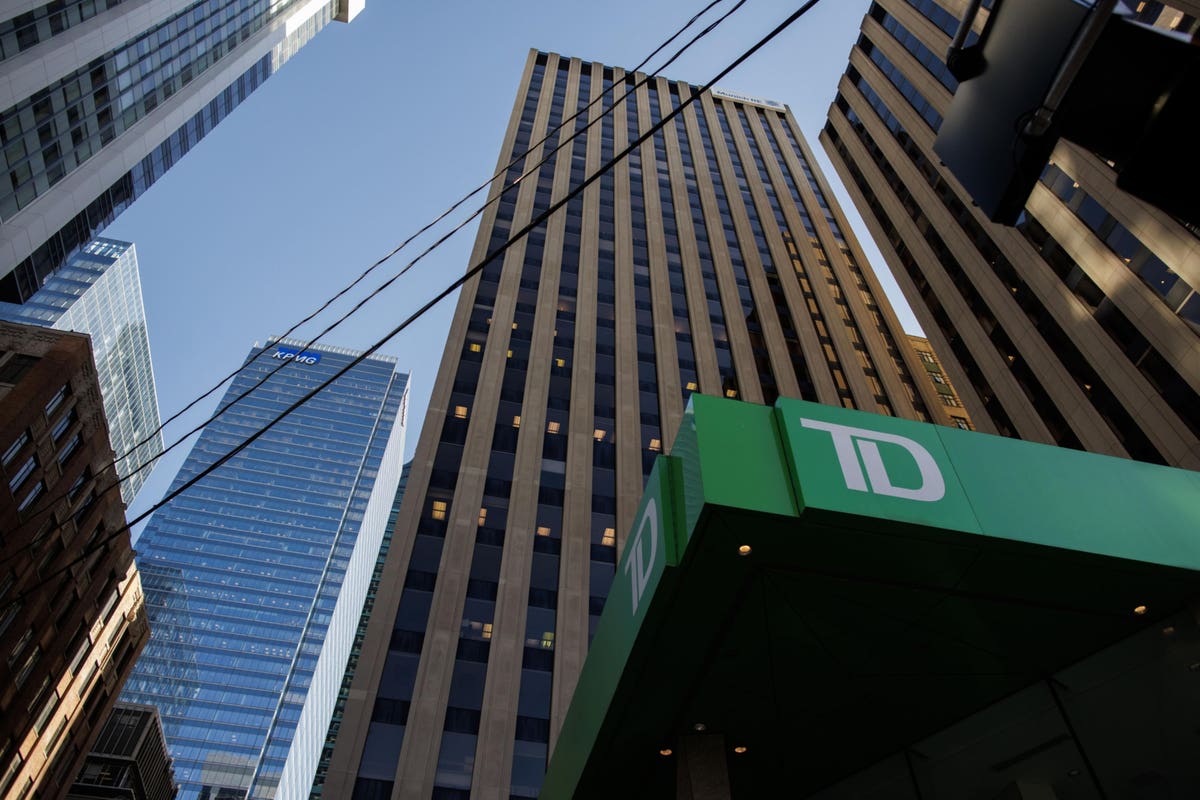This March 20, Toronto-Dominion’s CEO Bharat Masrani previously said he was fully committed to the bank’s $13.4 billion takeover of Memphis-based First Horizon — despite its stock trading 40% below TD’s offer price in March.
TD now abandoned the deal. Is the stock of $81 billion (first quarter 2023 assets) First Horizon a buy?
I would not touch this falling knife. The delay in regulatory approval that TD cited as the reason for canceling the deal suggests that there is something wrong here. Yet First Horizon’s financial statements suggest a far less precipitous decline than the one that preceded SVB’s collapse in March.
TD Terminates First Horizon Merger Deal
TD is paying up to shut down its deal to acquire First Horizon — announced in February 2022 — citing uncertainty regarding the timing of the deal’s approval by U.S. regulators. According to the Wall Street Journal, TD made the decision due to the uncertainty of “obtaining the regulatory prerequisites to push the merger through.”
TD is clearly getting the better of First Horizon. TD — whose stock rose slightly in pre-market trading — will pay First Horizon $225 million — 89% of which is a termination fee and 11% a fee reimbursement. First Horizon is the bigger loser as its stock plunged 43% in pre-market trading on May 4 — wiping some $3.5 billion off of its stock market capitalization.
Silicon Valley Bank Collapse Heightened Deal Stress
The collapse of SVB lowered the chance that the TD-First Horizon deal would get to the finish line. While different in its particulars, the outline of what happened here seems to follow many elements of 2023’s bank failure pattern.
How 2023’s bank failure pattern works
Bank failures this spring have followed a common path:
- Bank executives failed to anticipate rising rates. With interest rates at roughly zero until March 2022, there was little reason for depositors to search elsewhere for yield. Making loans to wealthy borrowers and incenting them to keep the money in the bank solved the problem of lending to collateral-free venture backed startups.
- When rates rose, bankers reacted too slowly to warnings. As the Fed raised interest rates, bankers kept their heads in the sand. Their long-term success caused them to ignore regulatory warnings.
- Their abrupt reactions triggered social-media fueled deposit runs. The threat of a downgrade in SVB’s credit rating was a brutal wakeup call that resulted in a rush sale of assets at a big loss — igniting a tweet-storm-fueled run on the bank.
- Stock price plunges signaled the next bank to fall. The market keeps pointing its finger at the next weakest member of the banking herd — accelerating its demise.
How SVB’s collapse compares to the TD-First Horizon deal failure
The unraveling of the TD-First Horizon deal grew more likely after SVB collapsed. In March, First Horizon stock traded 40% below TD’s offer. This suggested the market had concluded TD would cancel or renegotiate the deal that it struck before the Fed started raising interest rates in March 2022, according to Bloomberg.
First Horizon differs considerably from SVB. Most notably, the Memphis bank’s business is more diversified than SVB’s, which focused on venture-backed startups and wealthy individuals. Moreover, more than 90% of SVB’s deposits were uninsured — whereas “less than half of First Horizon’s deposits were uninsured as of the end of December,” according to company filings.
Trouble for the deal surfaced March 1 when First Horizon indicated regulators would not approve the merger by May 27, 2023 and the Memphis bank was negotiating with TD to extend the closing date. On March 2, Masrani told analysts he was fully committed to the deal and “This is a great transaction that offers scale and new capabilities to our US franchise,” noted Bloomberg.
Like SVB, First Horizon suffered a decline in deposits. At 5% — to about $65 billion — First Horizon’s outflow of deposits in the fourth quarter of 2022 was far less than the $42 billion deposit outflow SVB suffered the day before the FDIC took it over.
In the first quarter of 2023, First Horizon’s deposit outflow continued and its revenues and profits fell slightly. According to the bank’s earnings release, deposits in the March-ending quarter declined 4% to $62.2 billion. Revenue fell 3% to $859 million while net income declined 6% to $243 million.
In short, First Horizon stock is suffering more from comparisons to other banks that seem to be in more trouble than SVB and First Republic were before they collapsed.
What’s Next For First Horizon?
First Horizon — which is holding a May 4 investor conference call — expressed disappointment and optimism.
In a statement, First Horizon Chairman, President and Chief Executive Officer Bryan Jordan said, “While today’s announcement is unfortunate and unexpected, First Horizon will continue on its growth path operating from a position of strength and stability.”
Jordan cited a long list of strengths. These include “a strong capital position, disciplined credit quality, expense control measures, and well-diversified and stable funding mix. We [will build on client relationships] while maintaining a strong, asset-sensitive balance sheet well-positioned for the current rate environment.”
Read the full article here


